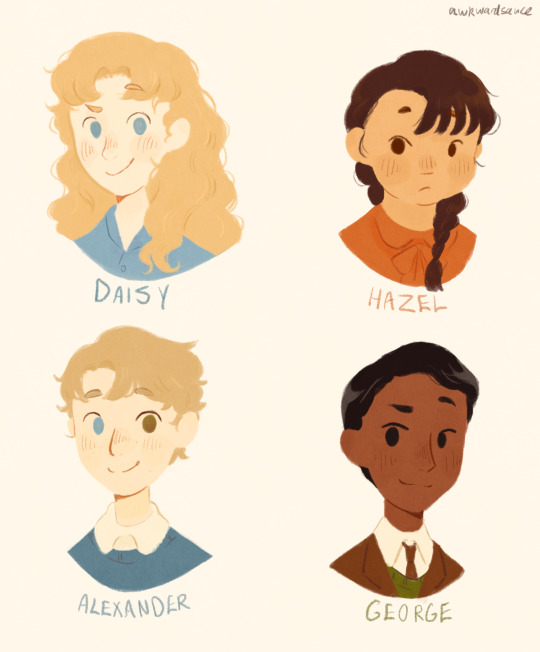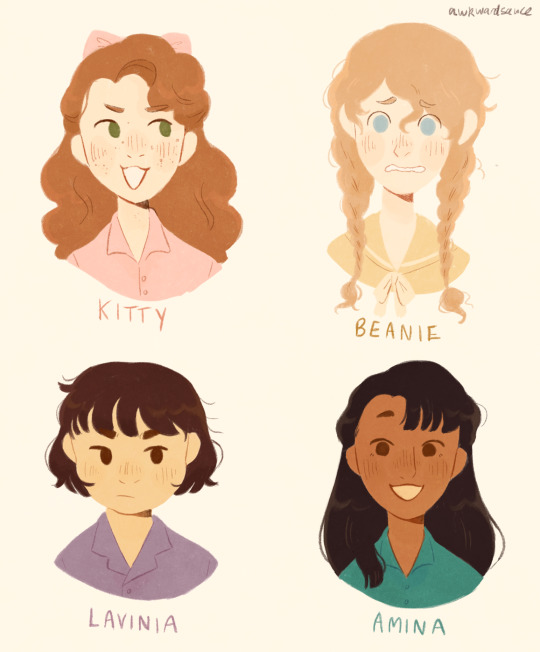aroace nerd who loves absurdist fiction, sea creatures, and finding ways to fuck the narrative over
Last active 60 minutes ago
Don't wanna be here? Send us removal request.
Text


finally finished my mmu portraits yippee!! I wanted to do a lot more characters but unfortunately I am only one artist and I have such little hands 😔😔
@redbreastedbird
154 notes
·
View notes
Text
me to the three people who interact with my posts

272K notes
·
View notes
Text
any other voltron fans still here in 2024....
#late(it's almost 2025) but here!!!#i have such a love hate relationship with the show lol#they did lance SO dirty in the last few seasons#but it's also thanks to them that pidge exists and i love pidge they're literally me so#voltron legendary defender
26 notes
·
View notes
Note
umm 11
hello! ty for the ask ^^
i'm assuming this is about the most recent ask game i reblogged so apologies if it isn't 🥲
when i was younger, i use to own this green hairbrush and i would bring it everywhere with me to the point that a classmate of mine once asked "why do you always brush your hair after someone talks to you?" i didn't have an answer because i didn't even realize i was doing it. it was an instinctive thing for me, i guess
nowadays, i have multiple items that could be considered comfort items?
i always have a magnifying glass and a pocket watch in my bag at any given time. idk why since they don’t have much of a use but i like having them there regardless.
i also own kindle and i never leave the house without it even when i know i won't have time to read. i often play with its casing by repeatedly removing then putting back one corner of its case :3
but the most likely candidate is probably my watch which i frequently fidget with the straps of and absolutely hate not wearing when i'm outside the house
1 note
·
View note
Text
“You don’t need to lose weight!”
Says the girl with a flat stomach, thin thighs with a thigh gap, visible collarbones and hips, slim arms, and no face puffiness
2K notes
·
View notes
Text
Guys I think about the post where some guy was researching irl Edgar Allan Poe but kept getting fanart of ranpoe I think about it every time I write "I hope ran gets with poe" yes he will i
14 notes
·
View notes
Photo

Faces carved into the walls of the Paris Catacombs
#as someone who took french for 7 years this is exactly like something they would do#their whole language is excessive hell why not their catacombs too?#/lh#(THIS IS A JOKE)#reblogs
152K notes
·
View notes
Text
ooh old account jumpscare
0 notes
Note
if you don't mind me asking, do you have a favorite book?
not really i like a lot of books but probably something by alice oseman or malinda lo?
#ah yes alice oseman#the holy grail of queer neurodivergent people's favorite authors#(i say that as if i'm not a massive fan of her myself)#i've never actually read anything by manlinda lo but she's piqued my interest a handful of times so that's very much subject to change
2 notes
·
View notes
Text
✨soft asks✨
What song makes you feel better?
What is your go to comfort show?
Reading or writing? Why?
Whats your favorite feeling?
How do you like to take care of yourself?
What’s your favorite candle scent?
Who do you feel most like yourself around?
Whats a fabric/texture that’s nostalgic for you?
Best childhood moment?
When was the last time you laughed so hard you cried? (or just felt really good afterwards)
Do you have a comfort item? Tell us about it!
What calms you down?
Bath or shower to relax?
Whats something upcoming that you’re excited for?
Comfort food?
What’s something you want to create soon?
How do you feel best loved?
What age in life do you think you’ll feel most yourself at?
Have you ever written or received a love letter?
Tell us about a memory you hold close to your heart.
Tea, Coffee, or hot cocoa?
Name of your favorite playlist?
Have you ever received flowers?
Who is your bestfriend?
If your soul was a color, what would it be?
If you could live anywhere with anyone you want, where would it be and who would you bring?
Do you like to garden? Have you ever grown something?
What are you proudest of?
Are you a kind person?
What do your hobbies look like?
9K notes
·
View notes
Text


cute thing im coming up with
this picrew of yourself and your current hyperfixation !!


no pressure tags @pearlzier @julesssyy @reidsfavoritegirl @whitney23317 @willowsblanket @flowercrownsandtrauma @rottenletter
7K notes
·
View notes
Text





—hello! i'm epher(or sealie), part-time mysterious eldritch being and full-time idiot.

about me: aroace ☆ she/her ☆ minor ☆ filipino ☆ multifandom & multilingual ☆ burnt out gifted kid ☆ bookworm ☆ theatre kid ☆ former fencer ☆ research enthusiast ☆ the world's leading vladmir x estragon truther
interests: classic literature ☆ writing ☆ marine biology ☆ mythology and folktales ☆ mystery novels ☆ marie antoinette ☆ theatre ☆ poisons
music: musicals ☆ madds buckley ☆ the good kid ☆ dirt poor robins ☆ etc
fandoms: riordanverse ☆ bungou stray dogs ☆ ducktales 2017 ☆ octonauts ☆ the magnus archives ☆ mcyt ☆ epic the musical ☆ vld ☆ murder most unladlylike ☆ a series of unfortunate events ☆ gravity falls ☆ dead boy detectives ☆ lockwood and co ☆ genshin ☆ osemanverse ☆ alien stage ☆ etc
more info under the cut!


favorite book(s): the master and margarita by mikhail bulgakov // waiting for godot by samuel beckett
favorite movie(s): knives out // the lego batman movie // the breakfast club
favorite game(s): minecraft // the sims 4

byi: i don't swear frequently but i do have the tendency to use words like "bastard" and "damn" (and, yes, i often sound like a 1950s english schoolgirl but i blame that entirely on enid blyton)
i also yap. i yap a lot.
i'm not really one for dms especially if you're an adult but feel free to tag me or send me asks, i enjoy receiving them :3
i'm very anxious and have a fair amount of my own issues like dealing with what is possibly undiagnosed autism so fair warning for that
i am usually either deadpan or overtly polite and there isn’t much of an in between unless we're discussing something i'm passionate about but i'm being sincere when i say that every interaction means a lot to me
additionally, i struggle to interpret certain messages so tone tags are really helpful

kinlist:


dni list:
homophobes and transphobes can suck my nonexistant dick ^^
racists, ableists, p3dophiles, lolicons, and supporters of israel are also unwelcome on this blog

moodboard made by my friend @marlair










userboxes:





#tagging system!#ramblings#->#in which sealie muses#in which epher goes insane while trying to comprehend words#in which epher aimlessly wanders(and gets lost)#in which epher falls down an extremely deep pit and struggles to claw her way out#for the collection#reblogs#introduction post#introductory post#introduction#pinned intro#blog intro#writeblr intro#bookblr intro
3 notes
·
View notes
Text
rewatching wk and hear me out
CHRIS X ZACH


#please tell me this is a popular ship#dont tell me you dont see it#they’re very fruity in some of the episodes#also i feel as though i have to specify that i mean FICTIONAL cartoon chris and not real life chris#chris kratt#zach varmitech#wild kratts#ramblings
34 notes
·
View notes
Note
i didn't know you liked bsd either!!
ive been fixated on it for the last month or so and you can see that in the way i've been aggressively spam-reblogging ranpo(e) and ada content 😭
RANPO HEADER :0
YEP :3
it's that scene where ranpo and yosano are inside Poe's book and ranpo says “are you a moron?”
i love ranpo he's one of my favorite characters
i didnt know you liked bsd :D
4 notes
·
View notes
Text

apollo in toa:
84 notes
·
View notes
Text


i had a vision.
5K notes
·
View notes
Text



ranpoe redraw :D
edit: ty to whoever said in the tags that it looks like ranpo is proposing using a candy because HE DEFINITELY WOULD
edit: okay so apparently everyone agrees that ranpo would propose using a ring pop and some of you even said he'd take the ring from poe later so he could eat it LMAO I see that everyone here shares the same braincell (me too
6K notes
·
View notes